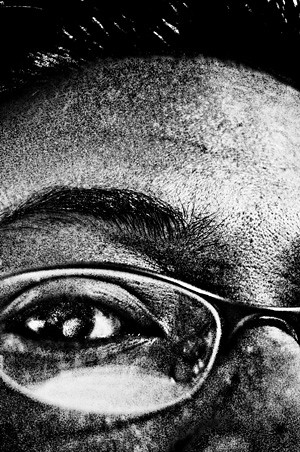 Le Dernier Metro (eng. title: The Last Metro)
Le Dernier Metro (eng. title: The Last Metro)
Directed by: Francois Truffaut
Written by: Francois Truffaut and Suzanne Schiffman
Copyright 1980
Released by: Studio Canal
Cast: Gerard Depardieu, Catherine Deneuve, Jean Poiret, Heinz Bennent, Jean-Louis Richard
Available in R1 DVD from Tartan Video’s Francois Truffaut Collection
Francois Truffaut’s Le Dernier Metro (1980) is Truffaut’s last film before he succumbed to a fatal brain tumor in 1984. However, he made a cameo appearance in Steven Speilberg’s science-fiction-fantasy flick Close Encounters of the Third Kind a year before his early demise-which in fact, could be Speilberg’s own homage to a great director that he could consider as his greatest influence. Truffaut’s own directorial capacities, while he focused (and more often) on mature yet light themes has been the material trademark on most of his works notably Le Quatre Cents Coups (The 400 Blows [1959]), who introduced Antoine Doinel as his filmic contemporary; Fahrenheit 451 (1962), which incidentally was Truffaut’s first and only Hollywood production; and La Nuit Americaine (Day for Night [1975]), the only film that brought him his only Cannes’ Palme d’ Or and the Oscars for Best Foreign Film.
Le Dernier Metro or The Last Metro in English is a story of a Parisian theatre struggling to keep its doors open during the German occupation of France. Set in 1942, the film’s main concern here is its attempt to put Truffaut’s lighter shades to contrast with the history’s darkest time. While the combination turns out a bit perfect, it somehow betrays a certain degree of realism that peppers the traditional French New Wave style of filmmaking. Gerard Depardieu plays Bernard Granger, an unemployed actor seeking temporary salvation from the Occupation and finds an appropriate refuge in Montmartre Theatre, owned by Marion Steiner (Catherine Deneuve) whose husband Lucas, mysteriously disappears after the German restrictions on Jews. Likewise, Marion wants the theatre to operate as much as her husband does, and so with the help of the cast and crew, decides to stage a Norweigan translation amidst threats of closure from the Censors and a pesky anti-semitic journalist played by Truffaut’s friend and co-screenwriter Jean-Louis Richard (who penned the equally magnificent La Nuit Americaine).
Truffaut, whose Le Quatre Cents Coups turned out to be strikingly semi-autobiographical, returned to Le Dernier Metro as perhaps a last glimpse to who Francois Truffaut was. More of a premonition than anything else, a film that he probably intended not as the climax of a career that spanned a number of films but rather a necessary denouement to a colorful and productive years in the filmmaking industry. The movie is basically a story of an institution, like Truffaut (who, most people could claim as the pioneer in the French New Wave explosion), on the edge of inevitable downfall, saved by a kind of invisible force that somehow bears certain similarity on how Truffaut was saved by French director Andre Bazan from life of deliquency. Perhaps a personal reflection to the field he chose to traverse, the metaphors of most Truffaut films revolves on the reality of movies-the distinction being the cameras and unending reels of negatives.
While Le Dernier Metro could be considered as one of Truffaut’s best works to date (I still regard La Nuit Americaine to be the greatest of them all, to my opinion trailed by the Antoine Doinel series), it still ensconces his fondness to depict the life he chose as the major conflict to his films. We see a vignette of a subway scene, a boy lost in a crowd of ignorant commuters superimposed to deliver a sense of familiarity to the type of genre Truffaut precisely motivates. This style, reminiscent of a La Nuit Americaine scene whereas in Truffaut’s dream, a boy stealing lobby cards of Citizen Kane in a theatre justifies such incorporation. Although much of the scenes are shot within the confines of the studio built as a theatre, it subliminally reminds us of the social, political and cultural asphyxiation the Germans (or any other conquering countries during that time) imposed upon the vanquished.
Truffaut, as I have noticed also paid proper respects to films that I believe possessed major influences in his craft. Consider this, a scene whereas Raymond, the theatre’s quartermaster arrives late on one of their rehearsals and makes an excuse that his bike is stolen on his way. Granger, on his own take of comfort to his glum colleague narrates a similar tale on the bikenapping-his story (if one could sensibly discern), is the same context we see in Vittorio de Sica’s The Bicycle Thief (1949). Whether such allusion is intentional on Truffaut’s part, it achieved a certain magnitude of reverence for his work.
The film also captures a spirit of resistance that is prevalent to most French citizens during the Occupation. The whiff of derision captivates Truffaut that its prevalence allows him to put the weight of such episode on the shoulders of his main characters: Bernard Granger, who has subtle political motivations undetected by most of his colleagues; and Marion Steiner whose furtive defiance to submit to Daxiat the journalist’s Gestapo-eqsue (interrogatory) advances could have pressured the opening of the theatre in anyway. Dark it may seem to the viewer, however Truffaut successfully manages to maintain a light mood despite a foreboding backdrop. Depardieu, as Granger skillfully manipulated his character that convincing may be the appropriate and necessary adjective to coin his performance. Little I’ve seen of Catherine Deneuve’s film roles (though, I will be seeing Luis Bunuel’s Belle de Jour [1962] two weeks after I write this review), except of course, the memorable scream sequence in Roman Polanski’s Repulsion (1960), nonetheless constrained me to say Deneuve’s acting capacity to be exceptional. Additional performances by Jean Poiret as the clandestinely-homosexual director Jean-Loup Cottins; Jean-Louis Richard’s annoying portrayal of the journalist Daxiat; as well as Heinz Bennent as Marion’s husband, Lucas Steiner.
Le Dernier Metro leaves little room for complaint, in my opinion. However, film critics might consider this movie a bitter and discontented remnant of the filmic reality Francois Truffaut left with his early demise. Probably the appropriate conclusion to his career that put him in the ranks adorned with Federico Fellini, Michaelangelo Antonioni, Alfred Hitchcock, Rainer Werner Fassbinder (who, like Truffaut died at an early age) or Jean-Luc Godard. Admittedly, I like La Nuit Americaine and Le Quatre Cents Coups than this one, nevertheless it’s a Truffaut film and similarly with Alfred Hitchcock, it’s still a work of a master.
Etchie Pingol
February 16, 2004
Office of Student Affairs
University of the Philippines Manila



